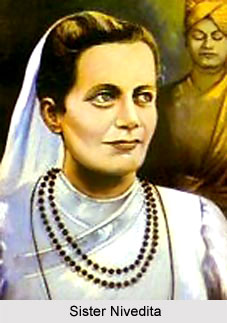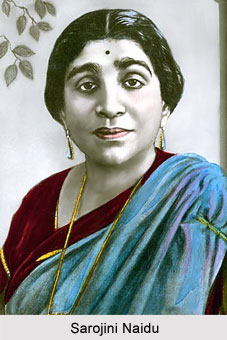 Women in Indian freedom struggle have significantly contributed almost at par with their male counterparts in fighting the British yoke. The initiative, bravery, guts and headship that the women have showed in the freedom movements for the country`s independence from colonial rule have given them widespread name, fame and significance in the Indian society. During the uprising of 1857, women of the ruling class came together along with the men to fulfil their ambition for an independent India. Maharani Ahilyabai Holkar and the famous Lakshmi Bai of Jhansi, Matangini Hazra Sarojini Naidu had become iconic figures in the Indian political arena. After the mortifying defeat of 1857, the British Government replaced the British East India Company and British rule became a historical fact.
Women in Indian freedom struggle have significantly contributed almost at par with their male counterparts in fighting the British yoke. The initiative, bravery, guts and headship that the women have showed in the freedom movements for the country`s independence from colonial rule have given them widespread name, fame and significance in the Indian society. During the uprising of 1857, women of the ruling class came together along with the men to fulfil their ambition for an independent India. Maharani Ahilyabai Holkar and the famous Lakshmi Bai of Jhansi, Matangini Hazra Sarojini Naidu had become iconic figures in the Indian political arena. After the mortifying defeat of 1857, the British Government replaced the British East India Company and British rule became a historical fact.
Indian women actively participated in the revolutionary movements for social changes during the national struggle for Independence. Thus, the participation of women was not restricted to one type of activity such as the non-violent Satyagraha Movement. Women`s early contribution to the Indian national movement started in the late 19th Century with their involvement in the Indian National Congress. In 1890, Swarana Kumari Ghoshal, a women novelist and Kadambari Ganguly, the first woman graduate of the British Empire, went to attend the Indian National Congress meeting as a delegate. Even Sarojini Naidu requires to be mentioned with equal importance better known as `Nightingale Of India`. In the year 1905, National Movement for the country`s independence took a crucial turn with the division of Bengal.
Role of Women in Independence Movement
During the freedom struggle of the country, women were not lagging behind. Women joined men to protest against the British rulers by boycotting foreign goods and resolving to buy only those goods produced in the territory of Bengal. Mrs. Nonibala Devi joined the new Jugantar Party which was dedicated to aggressive movement in the early 20th century. Mahatma Gandhi returned to India from South Africa in 1915 and took up the demand for self-rule and later for Purna Swaraj through non-violent methods. His call to join the Satyagraha Movement witnessed women getting involved in all his programmes. Some of the women who played a very active role in the Swadeshi Movement were Sarojini Naidu, Urmila Devi, Durgabai Deshmukh, S. Ambujammal, Basanti Devi, and Krishnabai Ram.
Women in Non-Cooperation Movement
Women of educated and liberal families, as well as those from the rural areas actively joined Mahatma Gandhi in his non Cooperation Movement. Rajkumari Amrit Kaur, Sucheta Kripalani, Sarla Devi Chaudhurani, Muthulaksmi Reddy, Susheela Nair, and Aruna Asaf Ali are some the women freedom fighters who participated in the non-violent movement. Kasturba Gandhi and Kamala Nehru also participated in the National Movement. Lado Rani Zutshi and her daughters led the movement in Lahore. Indian women who joined the national movement belonged to all walks of life, all castes, religions and communities.
Vijaya Lakshmi Pandit hailed from a well-known family. Her father Motilal Nehru was the president of Congress and brother Jawaharlal Nehru went on to become India`s Prime Minister. She was highly inspired by the personality of Rani Lakshmi Bai of Jhansi and by Sarojini Naidu. She participated in the Non Co-operation Movement to fight against the British rulers. Vijaya Lakshmi Pandit attended many public lectures and represented the country abroad. She was a great fighter and took part in many of the freedom movements. In the year 1936, Vijaya Lakshmi Pandit was elected in the Uttar Pradesh Assembly. Her political profession made her the first Women Cabinet Minister of India in the year 1937. Aruna Asaf Ali was another renowned freedom fighter and a devoted sociologist. She was selected as the first Mayor of Delhi. Sarojini Naidu was a noted poet, and one of the great freedom fighters of the country. Sarojini Naidu actively campaigned for the Khilafat Movement.
 Active Participation of Women in Politics
Active Participation of Women in Politics
The Indian National Army (INA), which was established by Subhash Chandra Bose, was one of the most genuine and fearless movements undertaken by Indian men and women under the able and remarkable leadership of this great patriot. Netaji Subhash Chandra Bose recruited around 1000 women for the Rani of Jhasi Regiment from different South East Asian countries. Dr. Lakshmi Swaminathan, who was a medical practitioner by profession, led this regiment. The women in the regiment were given the same training like their male counterparts. Even their uniform was similar to the men soldiers. The real impact of the INA may not have been in military terms, but it had a deep psychological impact on the women of India.
While there were significant numbers of women patriots who stood by Gandhiji and the Congress in the non-violent movement, women of Bengal and from other parts of India also participated in a vital role in various armed revolutions. Women played a major role in the Lahore Students Union of Bhagat Singh and the Kakori Train Robbery case. The Mahila Rashtriya Sangha was established by Latika Ghosh in the year 1928. Veena Das who shot at the Governor of Bengal, and Kamla Das Gupta and Kalyani Das were all active within the respective revolutionary groups. Women courageously participated in violent and non-violent movements of Indian independence.
The women in Indian freedom struggle have excelled as speakers, marchers, campaigners and tireless volunteers. They actively participated in the processions and rallies conducted by the Indian political parties. They always fought for Hindu-Muslim unity. The contribution of women in Indian freedom struggle is truly remarkable.






































